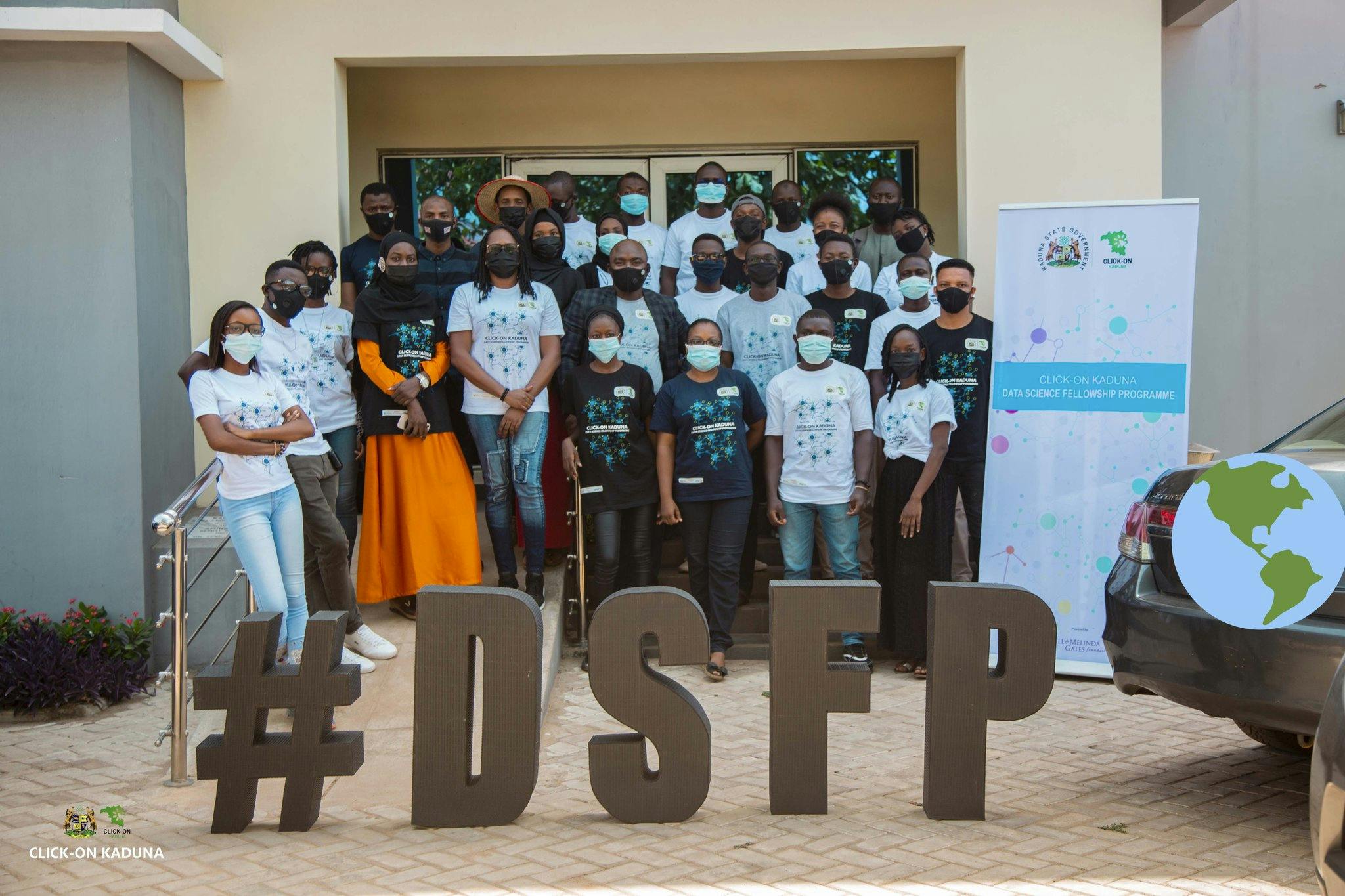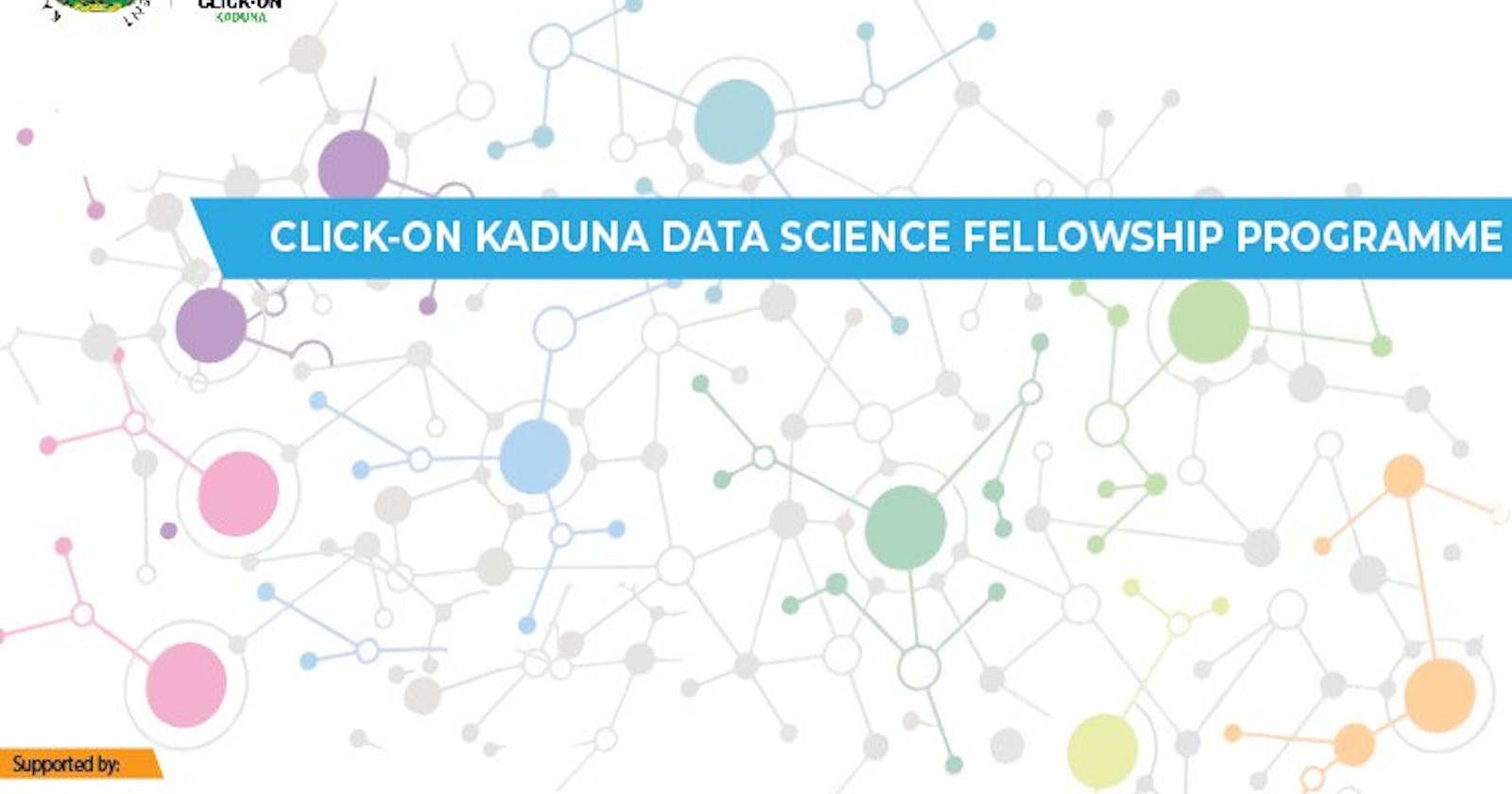Thursday 29th April 2021, marks the end of the 3 months intensive data science training by the Pioneer Fellows of the Click-On Kaduna Data Science Fellowship. This article aims to enlighten you on the Click-On Kaduna Data Science Fellowship, her partners, how to get in, and the benefits of joining the fellowship.
INTRODUCTION
The Data Science Fellowship Programme is part of the Kaduna State’s Data Revolution Plan aimed at strengthening the coordination in the collection and use of data for evidence-based decision making. The Data Lab Project is jointly implemented by the Kaduna State Government, Bill and Melinda Gates Foundation, and Natview Foundation for Technology Innovation. It is a 5-year project aimed at supporting the State in implementing the Data Revolution Plan, with a core objective of developing human capital around data science and the use of data for decision making.
The Data Science Fellowship Programme over the period of 5 years, would be building the capacity of 100 youths in a cohort of 25 persons each year on Data Science and the use of modern tools in decision making. The 6-months program with a focus on the health sector would have 3-months intensive training in a classroom learning environment and a 3-months paid internship; where participants would have an opportunity to work closely within the Amina J. Mohammed SDGs Data Lab under the Kaduna State Bureau of Statistics.
(culled with permission from Natview Foundation)
APPLICATION STAGE
Application for the current cohort was opened on 4th August 2020. Successful applicants went through four stages of the application process.
Stage 1(Essay writing): All applicants were expected to fill in their details, submit a valid means of identification, the number of hours one can devote to the fellowship, educational background, and an essay stating why one deserves a spot in the fellowship. Using this link over 6,000 people showed their interest in the fellowship. Candidates were selected based on the quality of their essay, the number of hours one can devote to the fellowship(>4 hours). Non-indigenes of the state were also given an equal opportunity to scale to the next stage.
Stage 2(Video presentation): The task here was to send in a five-minute video of less than 100MB explaining what Data Science is. In addition, explain how you intend to use your knowledge to solve problems in society.
Stage 3(CBT): A Computer Based Test was administered at Kaduna ICT Hub for two days with four sessions. Candidates were quizzed on their knowledge of Computer Science, Mathematics, Current Affairs, and Health (because this a health-centric cohort). The average performance score was Male:65% and Female:61%. Applicants who scored more than the average score were invited for the final stage.
Stage 4(Interview): The 3-Day process kicked off with a panel of experts in Data Science, Statistics, Mathematics, Government, and Public Health. Applicants who had expressed tremendous passion right from the start of the application process to this point were drilled and given the chance to earn a spot at the prestigious cohort. More like a shark tank situation.
Selected participants from this stage will win the opportunity to work in the Amina J. Mohammed SDGs Data Lab as fellows under the Kaduna State Bureau of Statistics to help support the use of data for evidence-based decision-making in the health sector.
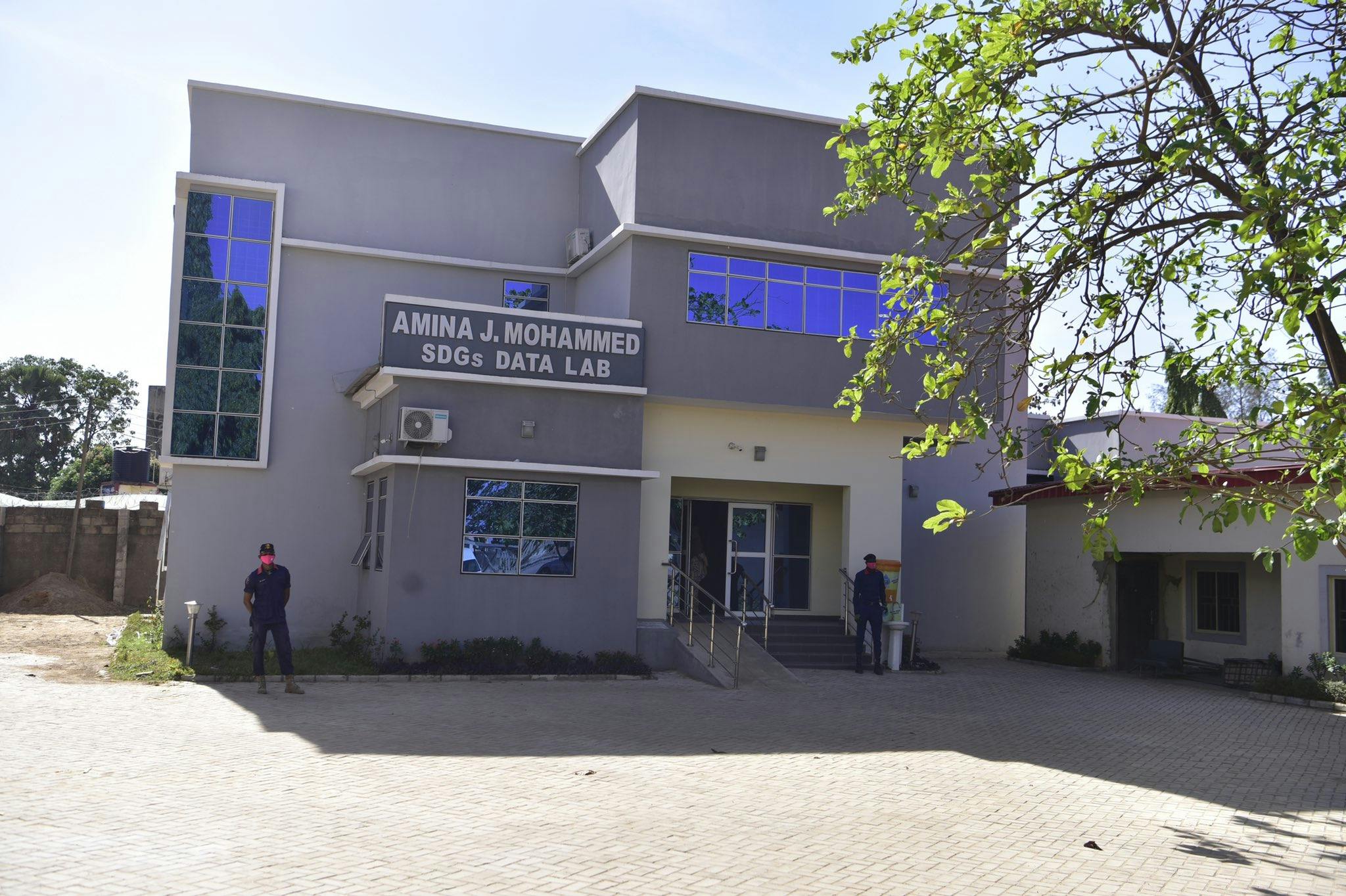
LET THE COHORT BEGIN
The first week in the fellowship consisted of a lot of virtual events. First, was the induction ceremony. We were officially inducted into the fellowship by the Executive Governor of Kaduna State, Mal. Nasiru El-Rufai, the Commissioner of Health for Kaduna State, Dr. Amina Baloni, the Chief of Staff to the Kaduna State Governor, a representative of Bill and Melina Gates Foundation, and the entire Natview Foundation. Subsequently, we had meetings with representatives from development partners: Bill and Melinda Gates Foundation, IBM Research Kenya, and Jobberman.
ORIENTATION
The fellows were welcomed into the prestigious Amina J. Mohammed Data Lab. The facility is fully air-conditioned with internet access and state-of-the-art equipments. Successful fellows got to meet their colleagues, get a branded data science kit and an acceptance letter containing stipend and data subscription details. Fellows were also required to sign documents binding them to the rules and regulations of the fellowship.
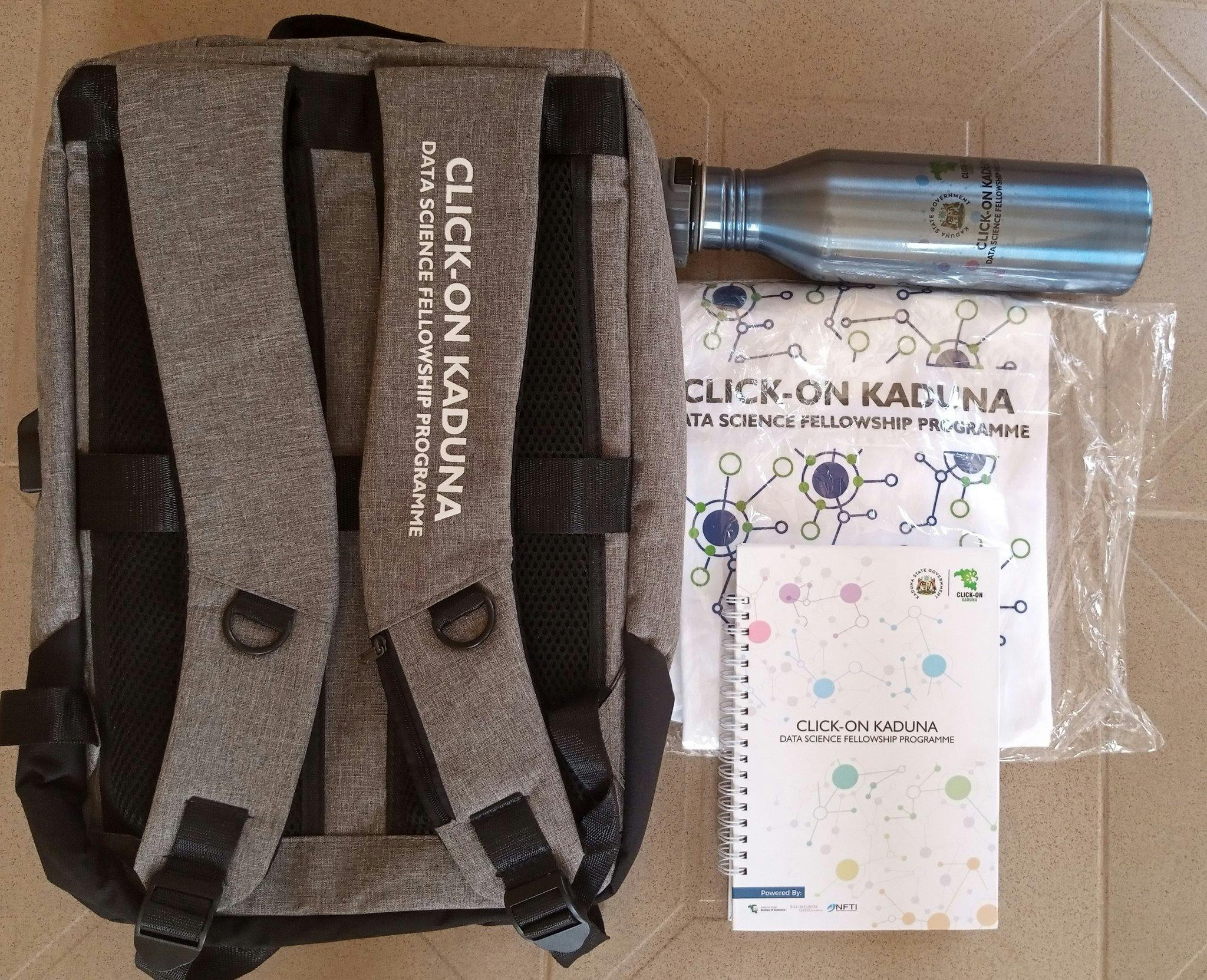
CLASSROOM TRAINING
Classes started in earnest the following week. With the best data science instructors selected from all around the state, we received the very best data science training. Classes were scheduled to hold four times a week. The first two days are virtual classes and the last two, physical. During the physical classes, a Kahoot Game is played to ascertain the knowledge level of fellows. This helps the instructor tailor information to the level of the fellows. Virtual classes, resources, assignments, and grading are all done using the Learning Management System(LMS). This way fellows, instructors, and organizers of the fellowship actively monitor the progress of the fellows.
COURSES
Every week in the Click-on Kaduna Data Science Fellowship is an opportunity to learn something new, outdo your past, and earn IBM badges. During the 3-months intensive classroom training, all fellows had a grasp of the following.
1. DATA GOVERNANCE AND STATISTICS
This course introduced us to:
- Principles of ethics and privacy in data management.
- Kaduna State Bureau of Statistics (KDBS) policy on ethics and privacy in its data collection process.
- Health Research Ethics Committee (HREC) protocol on data privacy and ethics as regards, health data collection, sharing and dissemination.
- KDBS Policy on data sharing.
- Nigerian Data Protection guideline 2019.
2. DATA COLLECTION
In this course, we learned to:
- Explore various data collection methods, their advantages and disadvantages and the right time to use them for exploratory analysis.
- Identify different sources of data for driving public programs with a focus on how possible it is to integrate both routine-based data with survey-based data.
- Understand e-form design techniques.
- Understand different tools and technologies for e-form design.
- Deep dive into developing e-based forms and principles to ensure that data forms meet minimum data quality standards.
3. DATA MODELLING AND PIPELINING USING EXCEL
Fellows were introduced to the use of Excel and SPSS to:
- Use advanced formulas to clean tables and prepare them for pipelining
- Use pivot tables for data analysis
- Understand routine data analysis using DHIS2
- Analyze survey-based data from the field, clean and prepare data for visualization.
- Use SPSS as a tool for data cleaning and preparation.
4. DATA VISUALIZATION USING POWER BI
This course introduced us to:
- PowerBI and PowerBI Building Blocks
- Connecting data sources in Power BI and Performing data transformations
- Data Modelling and using DAX language to develop powerful calculations used in data analysis
- Creating beautiful and insightful data visualization in Power BI report
- How to share created reports using the Power BI Service
5. EXPLORATORY DATA ANALYSIS USING PYTHON AND R
Fellows were introduced to the use of R and Python as tools for manipulating and handling large datasets:
- Import data
- Clean Dataset
- Data Sampling
- Analyze a dataset
- Visualize a dataset
- Write a report on the project.
- Work on real-life health datasets
6. GEOSPATIAL DATA MANAGEMENT
Fellows learned about:
- Leaflet and QGIS; effective open-source tools for learning geospatial dimensions.
- Georeference validation.
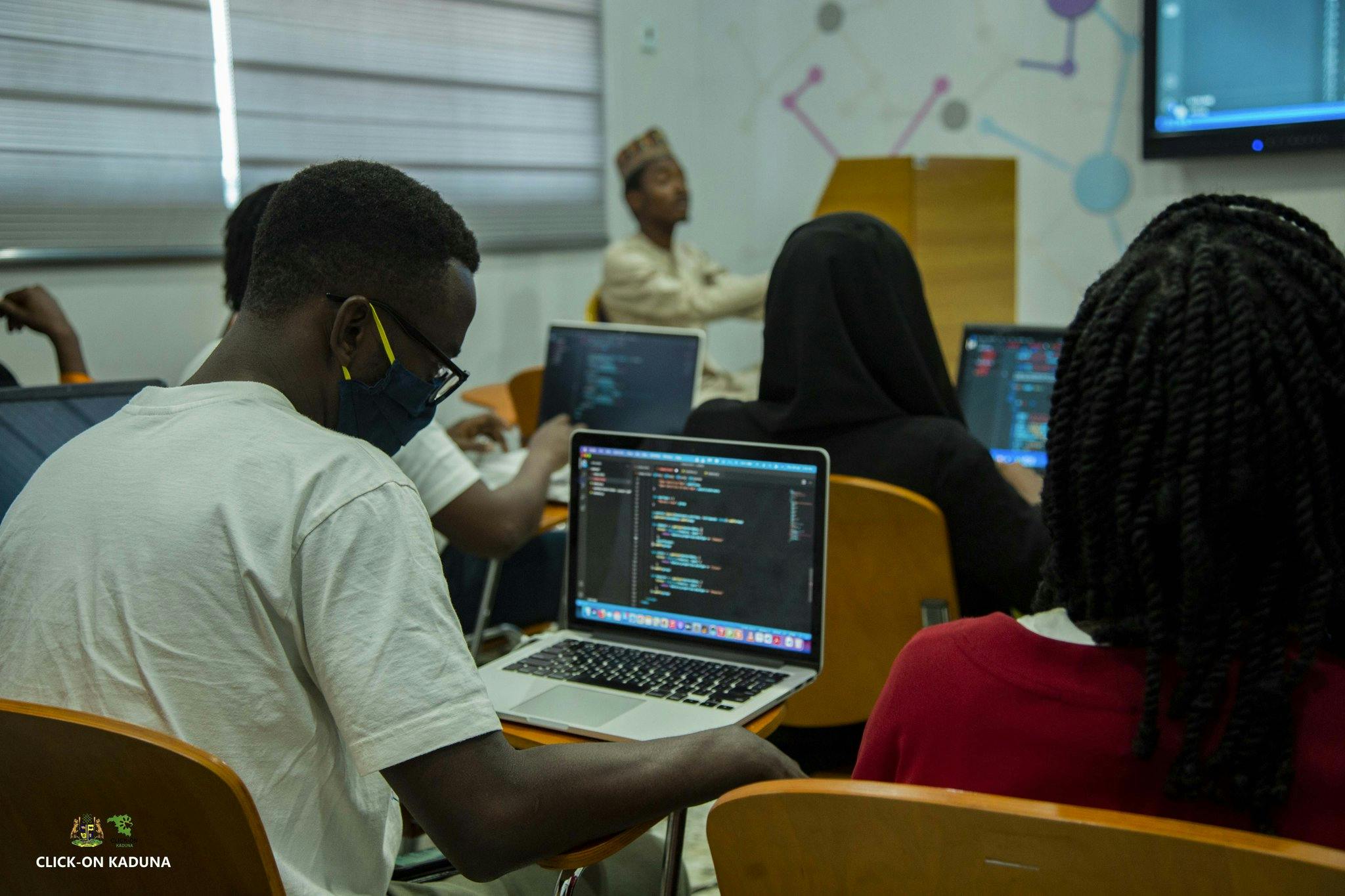
SPECIAL EVENTS
Having real-life application of Data Science is key to raising world-class Data Scientists. The organizers of Click-on Kaduna Data Science Fellowship understand this. As a result, they made it a point of duty to ensure all fellows attend field trips and have fireside chats with industry experts.
1. FIELD TRIP: The Data Science fellows were posted to several local governments to work as enumerators for the Kaduna State SDGs survey. We got a chance to practice data ethics, georeference validation, and data collection skills we learned in class.
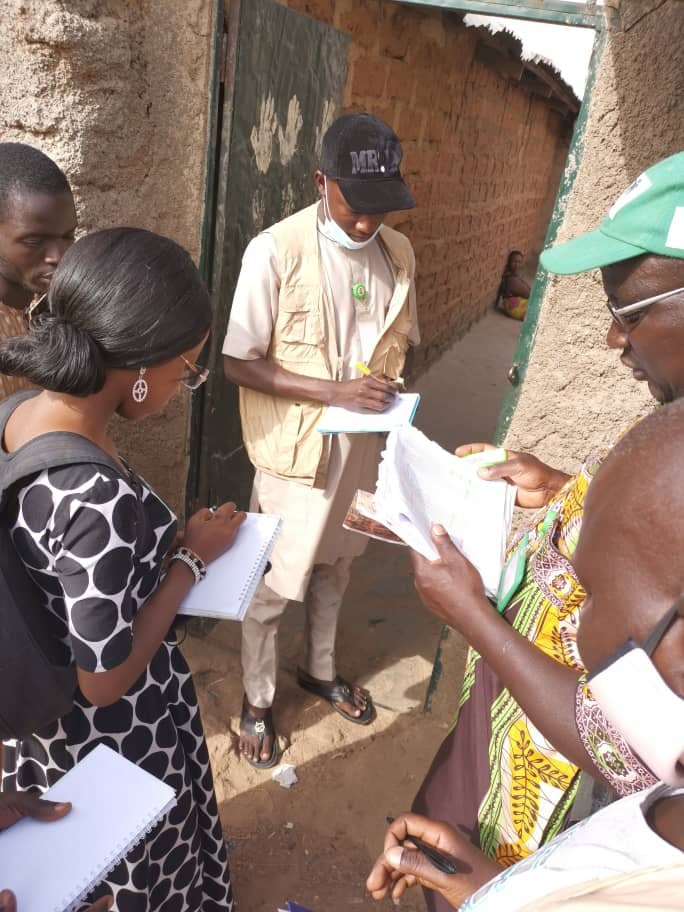
2. INTERACTIVE SESSION WITH FOUNDER OF ODK COLLECT: Fellows got the chance to connect with the founder of ODK collect, Yaw Anokwa, Ph.D. ODK collect is an important tool used around the world to collect data for public policy. Mr. Yaw walked the fellows through the application of the software, its updates, and new features. The Fellows also got a chance to ask questions and contribute to the software.
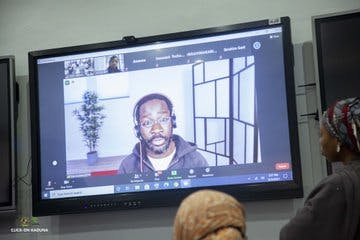
3. GUEST LECTURE SERIES: The fellows were privileged to have the presence of the Honorable Commissioner of Health, Dr. Amina Baloni and UNICEF's health specialist, Dr. Ibrahim Baba. The guest speakers spoke on "Strengthening Health Systems and Improving Health Emergency Response Through the Use of Data." The fellows were enlightened on the health sector in the state and received answers to their pressing questions.
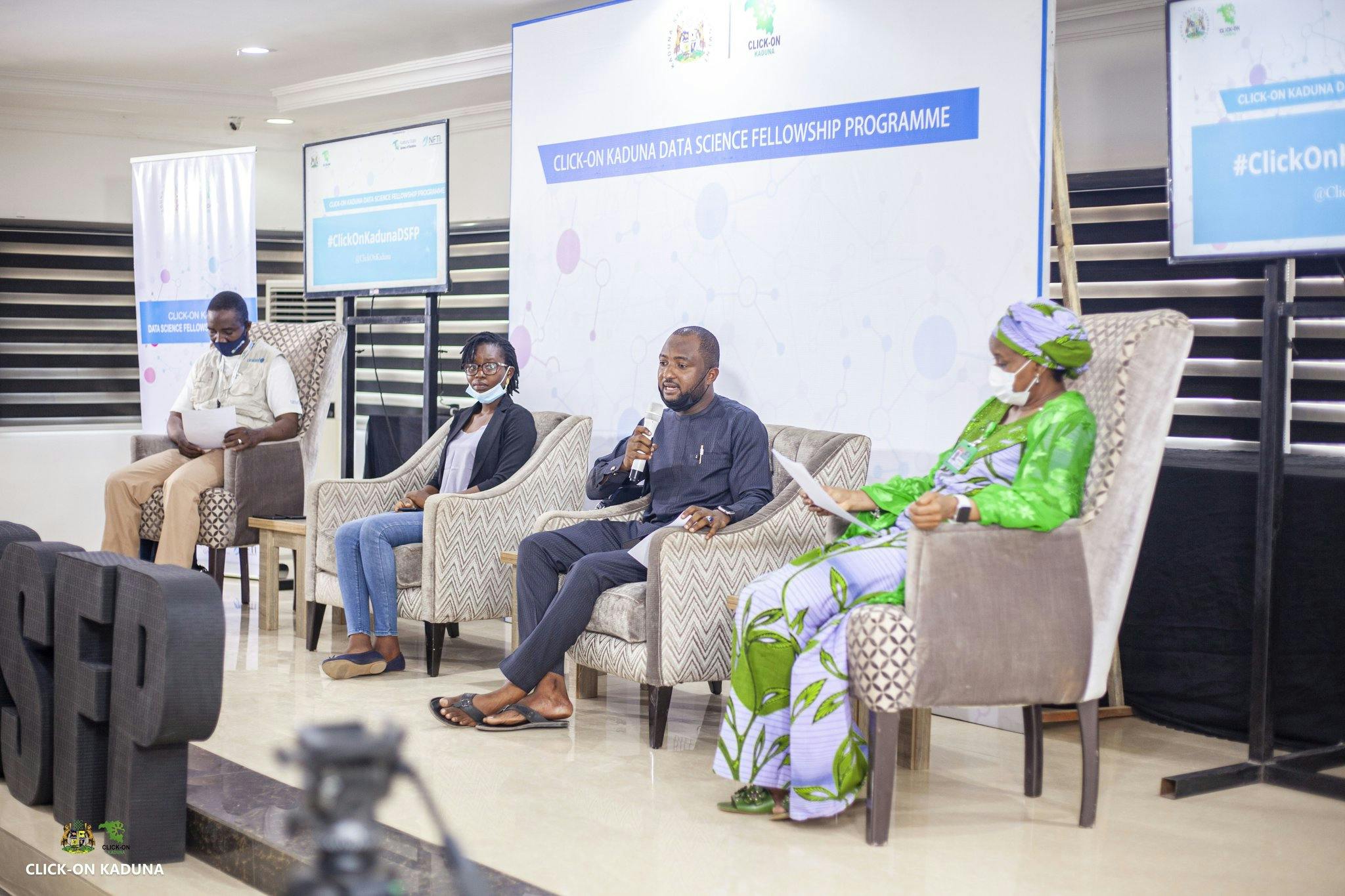
The progress of the fellows has been beyond amazing. The next three months would usher them into a new phase as they work closely with MDAs in Kaduna State to make data-driven decisions. This is just the beginning. In the words of Kaduna State Governor,
Data is the new oil. Data analysts would help us plan for future generations. Keep up the good work. ~Malam Nasiru El'Rufai
Follow the official Click-on Kaduna Twitter handle for more updates on this exhilarating journey and when the next cohort starts.
